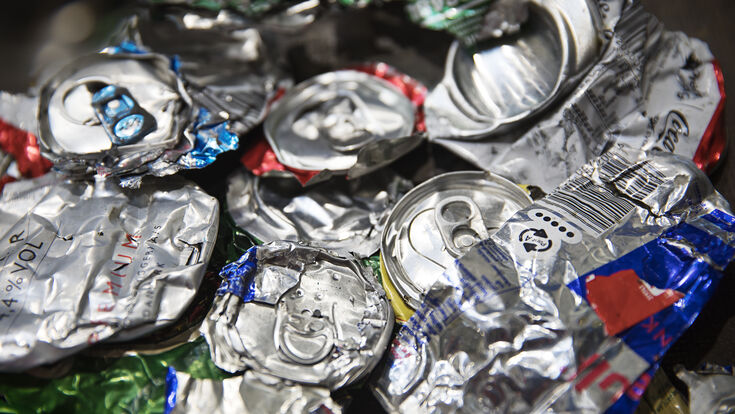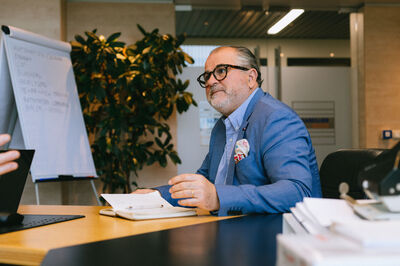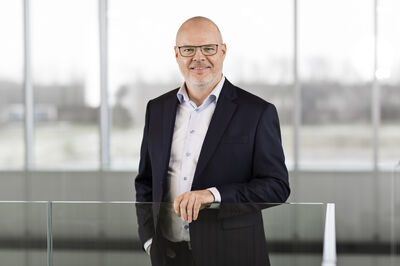Closing the loop : Bollegraaf and Dansk Retursystem: Building the future of recycling

In a landmark collaboration, Dutch recycling technology giant Bollegraaf Group and Denmark’s leading deposit system operator, Dansk Retursystem, are joining forces to create a state-of-the-art recycling facility in Fredericia, in Western Denmark. This cutting-edge plant will sort 2.5 to 3.5 million bottles and cans daily, reinforcing Denmark’s position as a global leader in sustainability and the circular economy.
The road to partnership
The collaboration stemmed from a rigorous public tender process, with Bollegraaf emerging as the clear winner thanks to their unmatched expertise and innovative solutions. Charles Daridon, Bollegraaf’s Global Sales Director, emphasises the importance of tailoring their approach to Dansk Retursystem’s specific needs. "We worked closely with the client during the tender phase to understand what they wanted and didn’t want, ensuring our proposal was perfectly aligned with their vision."
Jesper Larsen, Chief Operating Officer (COO) at Dansk Retursystem, notes that their choice was also informed by experience with their current factory in eastern Denmark. "We took lessons from the design and operation of that facility and used them to refine our requirements for Fredericia. Bollegraaf demonstrated the ability to meet these expectations comprehensively."

A vision of sustainability
Sustainability lies at the heart of this project. The Fredericia facility’s location next to a railway hub plays a crucial role in reducing CO2-emissions by enabling material transport via rail instead of trucks. "Using the rail system can cut emissions by 68 per cent compared to traditional transport," Larsen explains.
The plant itself is designed with efficiency in mind. Bollegraaf’s innovative technologies, such as their energy-efficient baler, consume 30 per cent less electricity than conventional models. The streamlined design reduces the number of conveyors, minimising both energy consumption and maintenance needs. As Daridon elaborates, "We always aim to develop robust, durable equipment that minimises the need for spare parts, enhancing the plant's overall sustainability."
Meeting evolving needs
Incorporating future adaptability is another key feature of the plant. "When designing the process, we prioritize making it as compact as possible while leaving room for potential upgrades," Daridon says. This flexibility ensures that the plant can evolve alongside changing regulations or material streams, such as new types of packaging that may require sorting. It’s easily possible to increase the volume by 30 percent, if necessary.
A unique aspect of the project was the involvement of Dansk Retursystem’s workforce in the planning phase. Employees were asked for feedback on what should not be repeated from previous facilities. This input resulted in 270 actionable insights that informed the plant's design. "It was a healthy and productive exercise," Larsen says, underscoring the value of incorporating practical, on-the-ground experience into strategic decision-making.

High-quality sorting for a circular economy
At the core of the Fredericia facility is its mission to maintain a closed-loop recycling system. The plant will separate aluminum cans and PET bottles with unparalleled precision, preserving the quality of materials for reuse in food-grade packaging. "Sorting quality is paramount," Daridon affirms. "Achieving high-quality output supports sustainability not just for our clients but for the environment as well."
Collaboration in action
This project has been characterized by extensive collaboration between Bollegraaf and Dansk Retursystem. Daridon highlights their end-to-end approach: "We never use a one-size-fits-all design, because every client’s needs are unique. Every project has its own challenges. Our close cooperation ensures the plant meets its operational requirements perfectly."
One such challenge was managing loose labels, a common issue in mixed waste streams. Bollegraaf developed a novel dual-equipment solution to remove loose labels effectively without compromising the mixed processing of aluminum cans and PET bottles. Daridon notes that this approach represents a significant innovation in sorting technology, enabling cleaner and more reliable outputs.
Larsen describes the ongoing dialogue between the project management teams: "It’s been a productive partnership. Both sides are invested in creating a facility that sets new benchmarks for recycling efficiency and sustainability."
A game-changer for Denmark
Once operational at the end of 2025, the Fredericia plant will consolidate Dansk Retursystem’s activities in western Denmark, replacing an outdated facility. It will not only improve sorting capabilities but also play a crucial role in the company's broader sustainability goals, including CO2 neutrality by 2030.
For Bollegraaf, the project marks their first major venture in Denmark, paving the way for future opportunities in the region. "This collaboration is an exciting milestone for us," Daridon says. "It demonstrates the potential of combining our expertise with forward-thinking clients like Dansk Retursystem."
The Danish and more generally the Scandinavian market is becoming more and more important for Bollegraaf. “We offer high-quality solutions that come at a price. The Scandinavian market is willing to pay for this quality and innovation,” Daridon explains. Furthermore, as of October 2024, Bollegraaf has a new investor: Impact investment firm Summa Equity has acquired a majority stake. Summa has a huge knowledge of the Scandinavian market which of course helps to develop more projects in the area.
With this new facility, we’re not just keeping up with the future - we’re building it.Jesper Larsen, Dansk Retursystem
A model for global waste management
As global regulations tighten around waste management and recycling, the collaboration between Bollegraaf and Dansk Retursystem serves as a model for integrating environmental, economic, and social considerations. By combining state-of-the-art technology with practical, real-world insights, this partnership demonstrates how industry leaders can work together to create a more sustainable future.
With its commitment to reducing CO2-emissions, enhancing sorting efficiency, and contributing to a robust circular economy, this project underscores the transformative potential of collaboration in waste management.
In Larsen’s words, “It’s about making smarter processes year after year. With this new facility, we’re not just keeping up with the future - we’re building it.”
In cooperation with Bollegraaf



